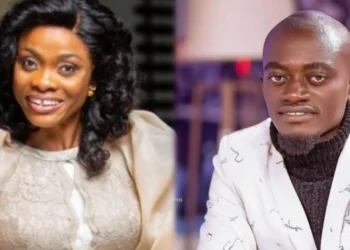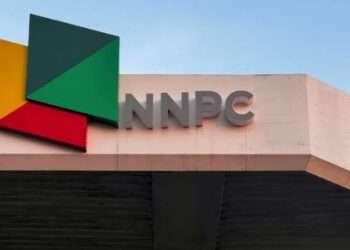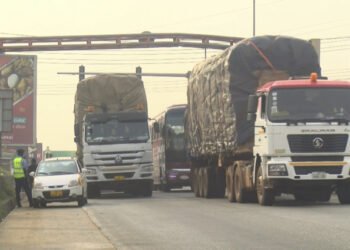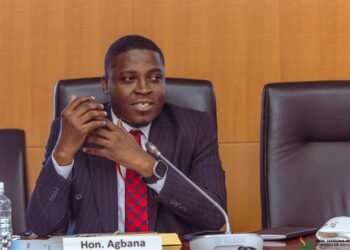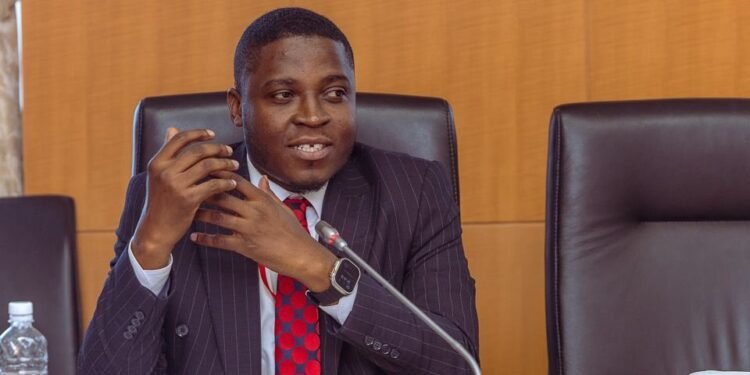In a pivotal moment ahead of the 2024 general elections, Dr. Mathew Opoku Prempeh, popularly known as Napo, has made a compelling appeal to traditional leaders across Ghana to actively participate in the country’s political landscape.
During a recent gathering with the Nungua Traditional Council in Accra, Napo emphasized the indispensable role that chiefs play in shaping the nation and highlighted the significance of their voices being heard on critical national issues.
Napo began his address by acknowledging the historical contributions of traditional leaders to Ghana’s independence and the subsequent development of the nation. He pointed out that the advice and guidance of these leaders were instrumental in navigating the path towards self-rule.
“Have you realized that politicians have turned around to tell you not to do politics? If we didn’t do politics, how did we come to attain independence? I’m not saying wear NPP colours or NDC colours.”
Dr. Mathew Opoku Prempeh, NPP’s Vice Presidential Candidate
The former Minister of Energy went on to clarify that his call to action does not advocate for aligning with any particular political party but rather emphasizes the inherent right of traditional leaders to influence policy decisions.
Napo asserted that the voices of traditional leaders should be integral to the political dialogue. Napo also stressed the importance of local communities taking ownership of their development, using the example of Nungua to illustrate this principle.
Napo’s remarks highlight the significant influence of traditional rulers in Ghana’s history and contemporary society. Chiefs played a pivotal role in the fight for independence, providing leadership and mobilizing support for the cause. Napo argues that this historical context validates their continued involvement in national affairs.
Napo’s appeal to traditional leaders is rooted in the belief that their involvement can bridge the gap between modern governance and customary practices. Chiefs hold significant moral authority and can influence their communities in ways that elected officials may not.
By advocating for their active participation, Napo seeks to harness this influence to foster a more inclusive and representative political environment. He believes that traditional leaders can provide critical insights and guidance that reflect the needs and aspirations of their communities.
Call for Active Participation

Highlighting the upcoming December elections, Napo urged the electorate in Nungua to consider voting for the NPP and its presidential candidate, Dr. Mahamudu Bawumia. He asserted that traditional leaders have the right and duty to speak on national matters, as they are integral agents of development.
Napo reminded his audience that traditional leaders have historically been key figures in Ghana’s socio-political landscape. By urging them to engage in political discussions, he aims to ensure that their valuable perspectives contribute to the nation’s progress.
“My campaign is different; I visit every royal house to tell them one thing. I tell them to help us, pray for us, guide us, counsel us, and give us direction. So, the Ghana that we’re developing is a Ghana that will be developed in freedom.”
Dr. Mathew Opoku Prempeh, NPP’s Vice Presidential Candidate
Dr. Mathew Opoku Prempeh’s call to traditional leaders marks a significant shift in the political dynamics of Ghana, highlighting the potential for greater collaboration between traditional authorities and the political class.
By advocating for the active participation of chiefs in political affairs, Napo aims to harness the wisdom and influence of traditional leaders to foster a more inclusive and prosperous nation.
The call for traditional leaders to participate in Ghana’s political discourse underscores the enduring significance of chiefs in the nation’s development. By highlighting their historical contributions and advocating for their involvement in modern governance, Napo seeks to create a more inclusive and representative political landscape.
READ ALSO: YouTube to celebrate Burna Boy’s 5 years of ‘African Giant’ Album


